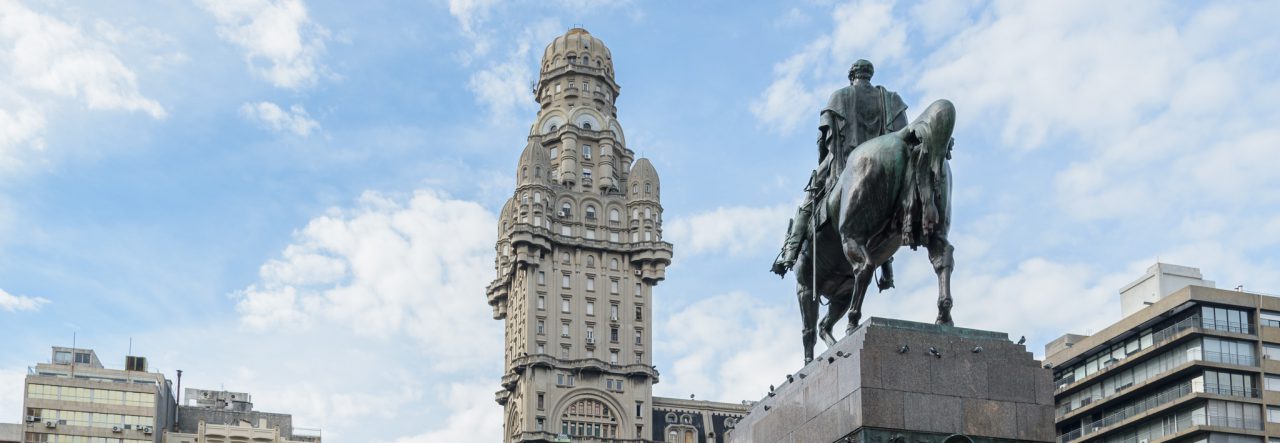The Uruguayan government will restrict the amount of international parcels Uruguayans can have shipped from outside the country tax-free to five with a total value up to US $ 1,000 per person per year. The Uruguyan goverment also has established procedures for private couriers that will allow Uruguay to verify compliance with the new limits.
These details form part of the regulation that was drawn up by Economy and Industry Ministries under an article included in last year’s budget which increased the value of parcels exempted from taxation to US $500 from US $50 said El País sources in the Economy Ministry.
While the budget increased the potential value of tax-free parcels, more legislation is need for this change to go into effect. Article 260 of the budget that the government sent to parliament late last year stated that: “express delivery international purchased parcels, whose weight does not exceed 20 kilograms and whose value in local currency is less than US $200, with the exception of those that contain products subject to the excise tax (Imesi) will be exempt from import, export, transit taxes, and the value-added-tax (IVA).”
The article further states “the tax regime provided for in the preceding paragraph applies with respect to international express delivery postal parcels, which are handled under normal conditions, in accordance with the regulations dictated by the Executive Branch”.
Sources say that the regulations will establish a numeric “maximum of purchases” that can be made “per year, using the exemption”. At the moment the draft decree allows five tax-exempt purchases to be made per year, sources said, which is a maximum of US $1,000 if each parcel had the maximum value of US $200.
The regulation was prepared initially by the Economy Ministry and later passed to the Industry Ministry who made some changes at the end of last month. The draft of the regulation returned to the Economy Ministry and should be signed either this week or next week by the head of the Ministry Fernando Lorenzo.
In addition to setting a limit on purchases per year, the decree establishes certain “methods of control” such as the whoever is receiving the package must be to same as the purchaser in order to simplify enforcement.
Private mail courriers in Uruguay will also be required to use “control” software to track the number of packages and to ensure people don’t go over the limit.
CONTEXT
In 2001, in the middle of the economic crisis, the government of Jorge Batlle approved a decree exempting puchases up to US $50 to enter Uruguay without paying taxes. Since that decree, there has been a growth in purchases of clothes and other goods from foreign countries encouraged by a weak dollar but it has hurt local industry.
Now the decision to increasing the tax-free limit is linked to other goals. One of these is compliance with the Framework Agreement on Trade and Investment (TIFA) that Uruguay has signed with the United States which makes a point of developing e-commerce. Additionally, the exchange rate has changed and is no longer encouraging these purchases.
Currently the tax-free exemption of up to U.S. $ 50 is to allow “family gifts, groceries, clothing, cassettes, tapes, photographs and those similar objects that can match this concept,” says the decree. Never the less, it excludes things like sunglasses, cash, seeds, flamable products, tobacco, cigarrettes, cigars, medicine, and others. In the case of purchases between US $50 and US$100 there are customs taxes equal to 60% of the value. However currently there is no limit on purchases. Consumers can ship an unlimited amount of small items tax-free.
Inside the garmet sector, the limit increase is seen as mixed although the limit increase to US$ 200 could create greater competition, many local companies use the tax-free packages to get small components for their products since the Temporary Admission process usually takes longer and costs more for the government and the importers, industry sources said.
This story is a translation of an article that appeared in the Uruguyan newspaper El Pais. To view the original article in Spanish click here. A similar story appear in the Uruguayan newspaper El Observador which can be viewed here (also in Spanish).
